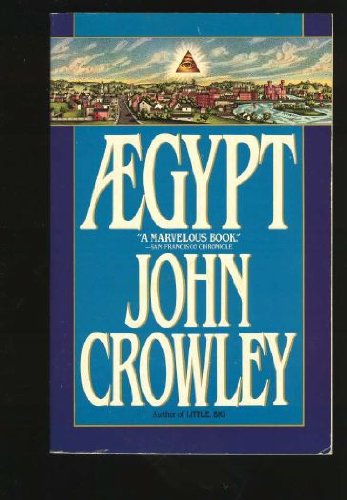Reviewed by empressbrooke on
I have to admit, I almost didn't make it through. The first 1/3 of the book is sloooow and pretentious. I hate leaving books unfinished, though, so I plowed ahead. Once Crowley finishes laying out his thesis and starts moving along, it gets better. Still so very pretentious, but better.
It skips back and forth and up and down between all sorts of characters - Pierce Moffett, a 30-something ex-professor who wants to write a book about the histories of the world; Rosie Mucho, who takes up a lot of pages but hasn't really done anything except leave her husband; and the various real-life characters in fictional author Fellows Kraft's books: young Shakespeare, Giordano Bruno, Dr. John Dee, and Edward Talbot. It's annoying, sometimes, settling in with one person and then being pushed along to the next.
The dialogue does not win any awards - everyone peppers their sentences with "hey"s and "okay"s and "what"s-without-a-question-mark. It's definitely closer to real dialogue than prose, but what really comes out of our mouths is not meant for being read verbatim. It's just messy. There aren't even very many real conversations - everyone is lost in these endless internal monologues, which made me want to yell, "Let's just get on with it!" sometimes.
Despite all these complaints, the latter two thirds of the book left me intrigued enough to pick up at least the second book in the series. It's not that I really, really enjoyed this one and want to read more, but rather that I just want to see where it's heading. I can't imagine for the life of me what Crowley can do for another three books on this topic, but I'm willing to find out.
Reading updates
- Started reading
- 28 April, 2008: Finished reading
- 28 April, 2008: Reviewed
